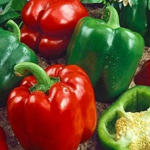FREE: Certified Organic Brown Mustard Seeds - 200 Seeds

A member of Listia gave this away for free!
Do you want FREE stuff like this?
Listia is 100% Free to use
Over 100,000 items are FREE on Listia
Declutter your home & save money

"Listia is like EBay, except everything is free" - Los Angeles Times

"An Awesome Way To Give And Get Free Stuff" - Michael Arrington, TechCrunch
This Stuff is Free Too:

FREE

FREE

FREE

FREE

FREE
The listing, Certified Organic Brown Mustard Seeds - 200 Seeds has ended.
YOU WILL RECEIVE 200 SEEDSMustard is an ancient plant that’s full of appeal for contemporary gardeners. The plants are easy to grow and produce seed in as few as 60 days. The greens are edible, the flowers attractive, and if the seeds are allowed to mature on the plant, they will self-sow and still provide plenty for mustard making. Is making your own mustard worth the effort? Considering that a small jar of good Dijon can cost up to $6, it is indeed. About a dollar’s worth of seed will produce a pantry shelf full of fine and fancy mustards and more greens than you can shake a salad spinner at.
Mustard in all its forms—shoots, leaves, flowers, whole seed, powdered, or prepared—is a flavorful, low-fat way to punch up any savory food. I’ve used the whole seed in pickling and cooking, tossed the tender greens in fresh salads (garnished with mustard flowers, of course), stewed mature leaves as a southern-style side dish, and crushed spicy seed to make a variety of pungent mustards.
Mustard seed contains no cholesterol, only trace amounts of vegetable fat, and about 25 percent protein. Leaf mustard contains calcium, phosphorus, magnesium, and Vitamin B. The calories are negligible in most basic prepared mustards, so you can feel free to indulge.
Mustard is easy to grow
Mustard will grow well in most soils, but will produce the most seed in rich, well-drained, well-prepared soil with a pH of no less than 6.0. It will thrive if given constant moisture. It likes cool weather; a light frost can even improve the flavor.
Mustard is blissfully free of insect and disease problems, and larger critters don’t seem to like it much either. The hotter and drier the weather, though, the faster the plants go to seed—30 to 60 days, depending on the variety and the climate.
Certified Organic Brown Mustard Seeds - 200 Seeds is in the Home & Garden | Gardening | Gardening Seeds & Bulbs category

